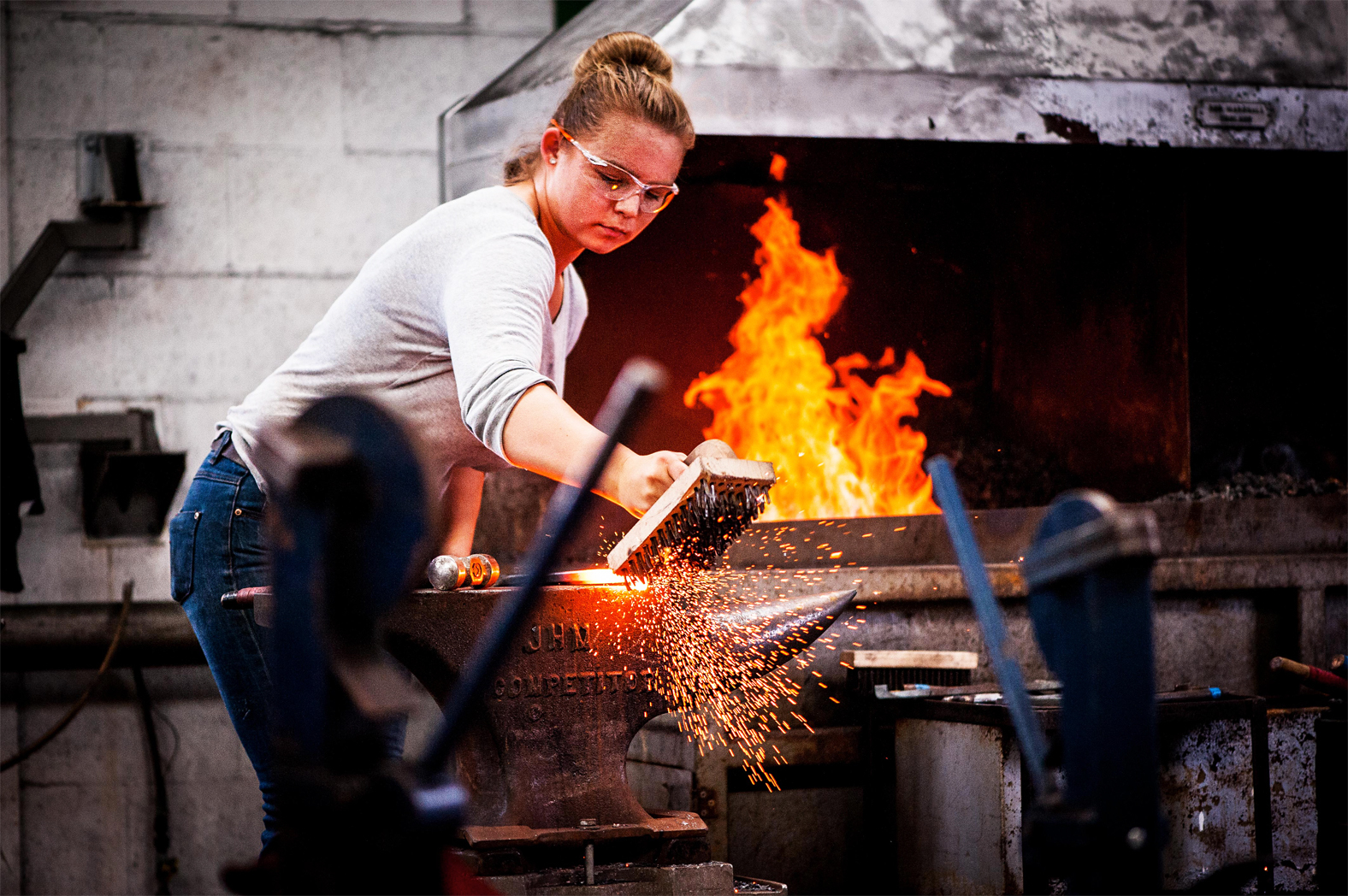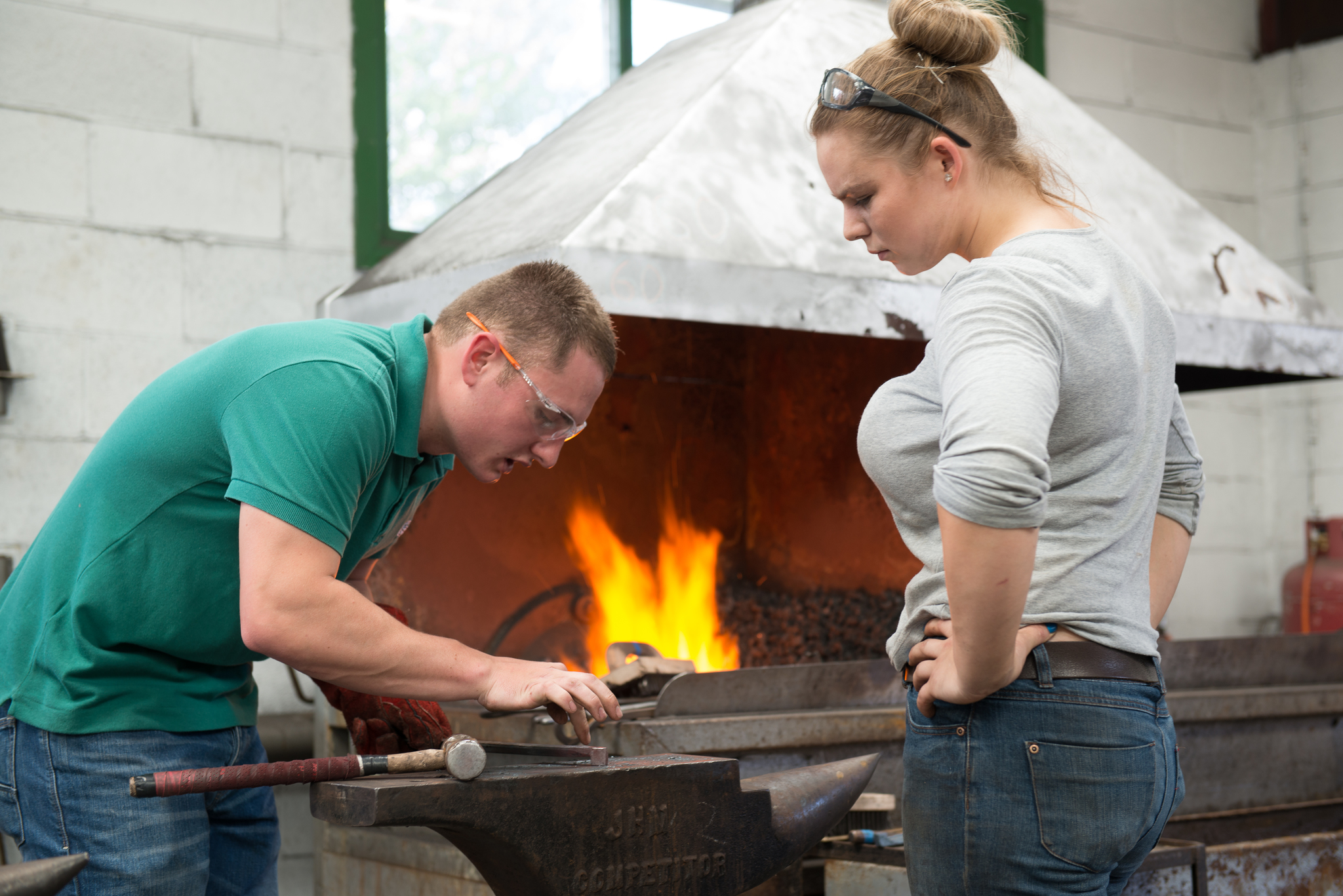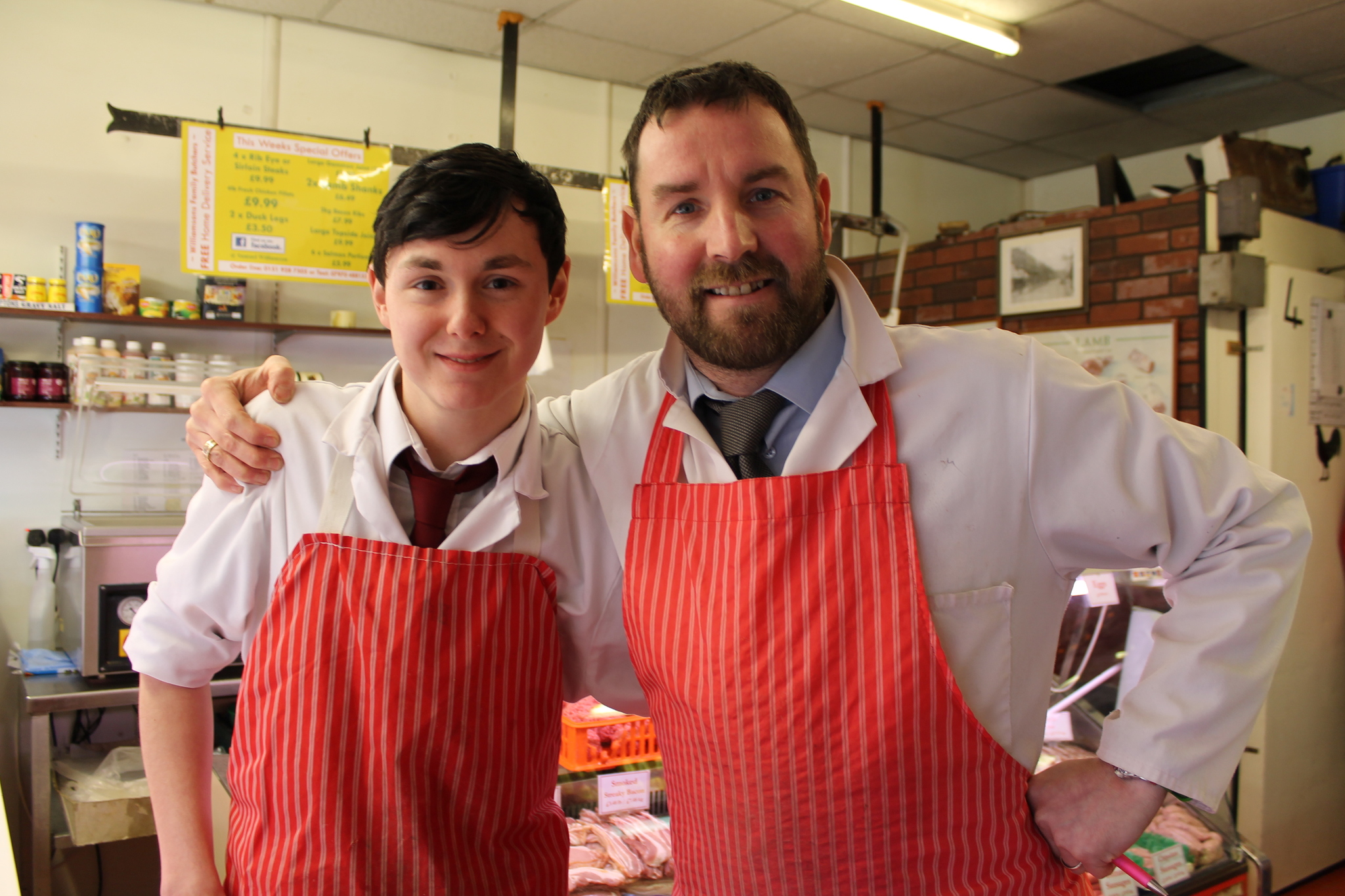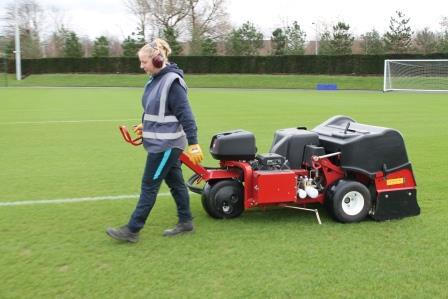Entry requirements & additional information
Entry requirements
The minimum entry requirements are currently either:
- Typically 5 GCSE passes at Grade C or above, which must include English, Mathematics and Science.
- Equivalent qualifications may apply, please contact the College for further information. It is the responsibility of each applicant to provide proof that any qualifications held are equivalent to or higher than the specified minimum educational entry requirements.
- Please be aware that we cannot accept Adult Numeracy or Adult Literacy level 2 as an equivalent to the GCSE English and Maths. Functional Skills Level 2 English and Maths are the mandatory requirement.
- A formal interview will be required which will include a written exam on horse knowledge and examination of any metal work the applicant has made and brought with them.
Learning and assessment
Assessments: Candidates must complete the following:
During the course of this training and in order to be eligible for registration onto the Register of Farriers via this Apprenticeship the following outcomes must be successfully completed by the apprentice:
- Knowledge Skills & Behaviours
- Gateway to include shoeboard
- Practical, Theory and Oral exam i.e. End Point Assessment run by WCF Diploma in Farriery (QCF)
Training is split between ‘on the job’ training in the workplace with the ATF and ‘off the job’ training part of which will be 20 weeks in College. These 20 weeks are on average 3 week blocks spread over the 4 years.
Careers
Students passing this course will have the qualification to become a Registered Farrier
Further career opportunities
Diploma of Higher Education Farriery (blended learning)
BSc (Hons) Farriery (top-up) (blended learning)
TTFA Award to become an ATF
Associate of the Worshipful Company of Farriers (AWCF)
Fellowship of the Worshipful Company of Farriers( FWCF)
Special requirements
All Applicants must have a letter of support from an ATF confirming that they will be guaranteed employment until completion of their Advanced Apprenticeship.
Latest news, Farriery
-
Higher education Research Expo a success
- Published
- Friday 17 Nov 2023
-
Myerscough farriers celebrate qualifying at national awards ceremony
- Published
- Tuesday 27 Jun 2023
-
SUCCESS STORY: Luke’s Myerscough course is the gateway to new blacksmithing career
- Published
- Monday 1 Mar 2021
-
#NAW2021 – Forging a career in farriery is neigh problem at Myerscough
- Published
- Wednesday 10 Feb 2021
-
Myerscough farriery’s Craig a shoe-in for BFBA President
- Published
- Thursday 5 Nov 2020
Latest news, Farriery
-
Higher education Research Expo a success
- Published
- Friday 17 Nov 2023
-
Myerscough farriers celebrate qualifying at national awards ceremony
- Published
- Tuesday 27 Jun 2023
-
SUCCESS STORY: Luke’s Myerscough course is the gateway to new blacksmithing career
- Published
- Monday 1 Mar 2021
-
#NAW2021 – Forging a career in farriery is neigh problem at Myerscough
- Published
- Wednesday 10 Feb 2021
-
Myerscough farriery’s Craig a shoe-in for BFBA President
- Published
- Thursday 5 Nov 2020
-
FEATURE: Engineering a career with Myerscough College
- Published
- Tuesday 3 Nov 2020









